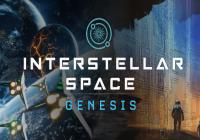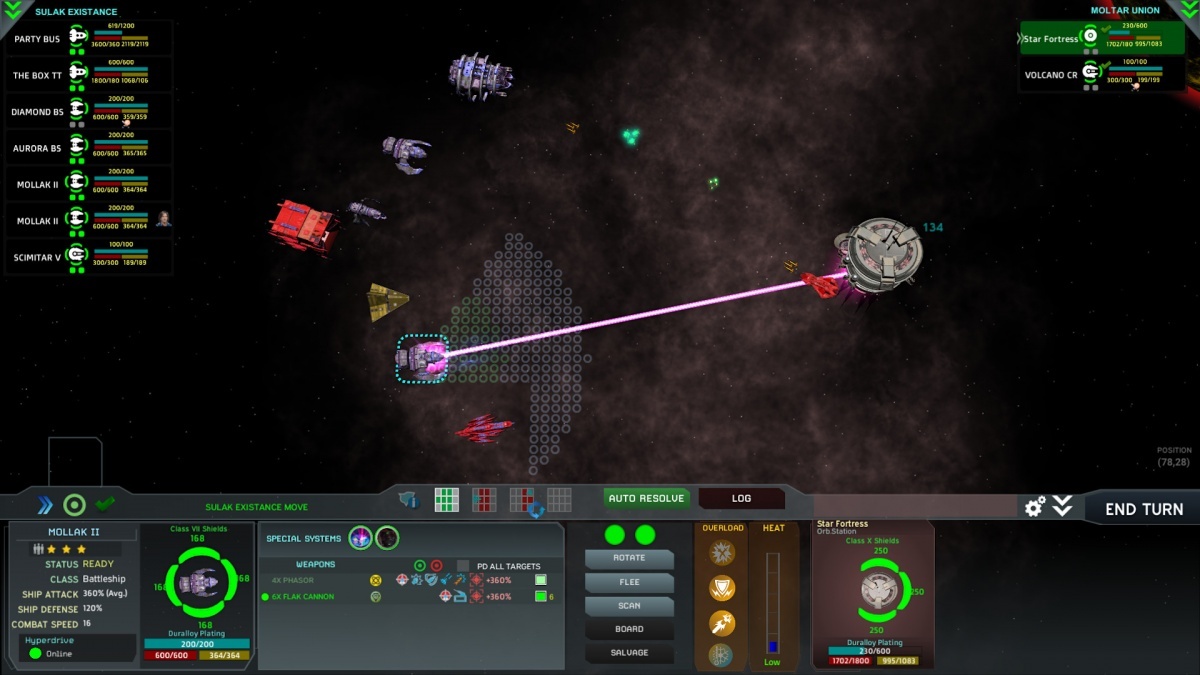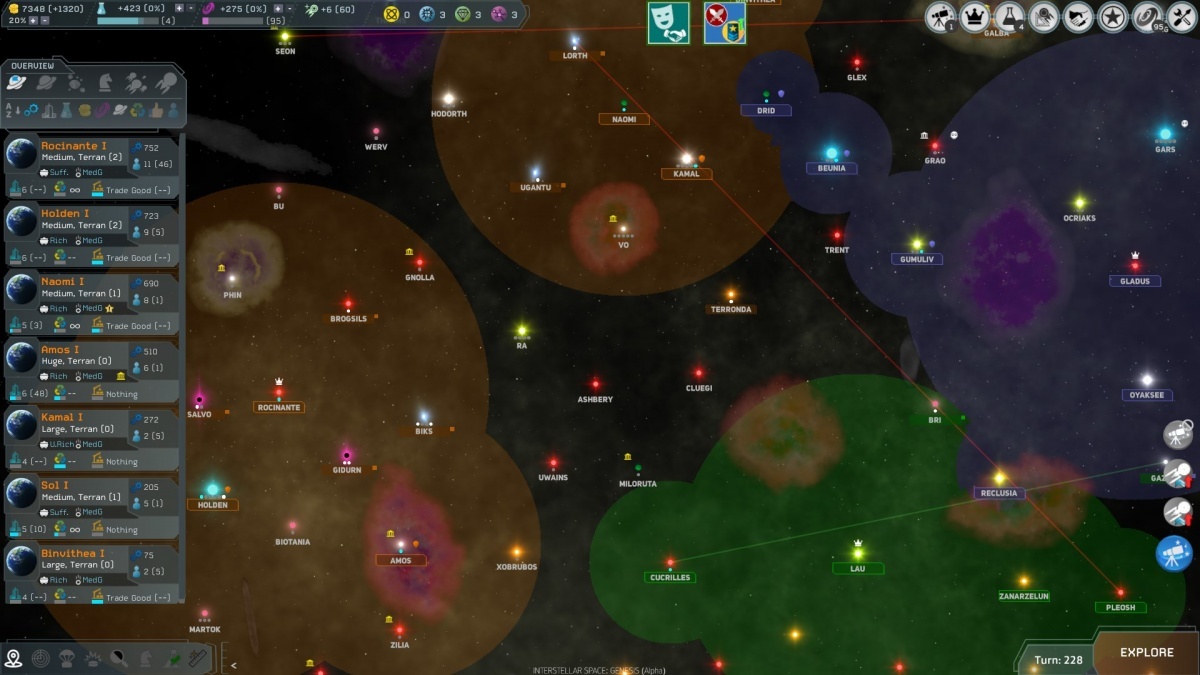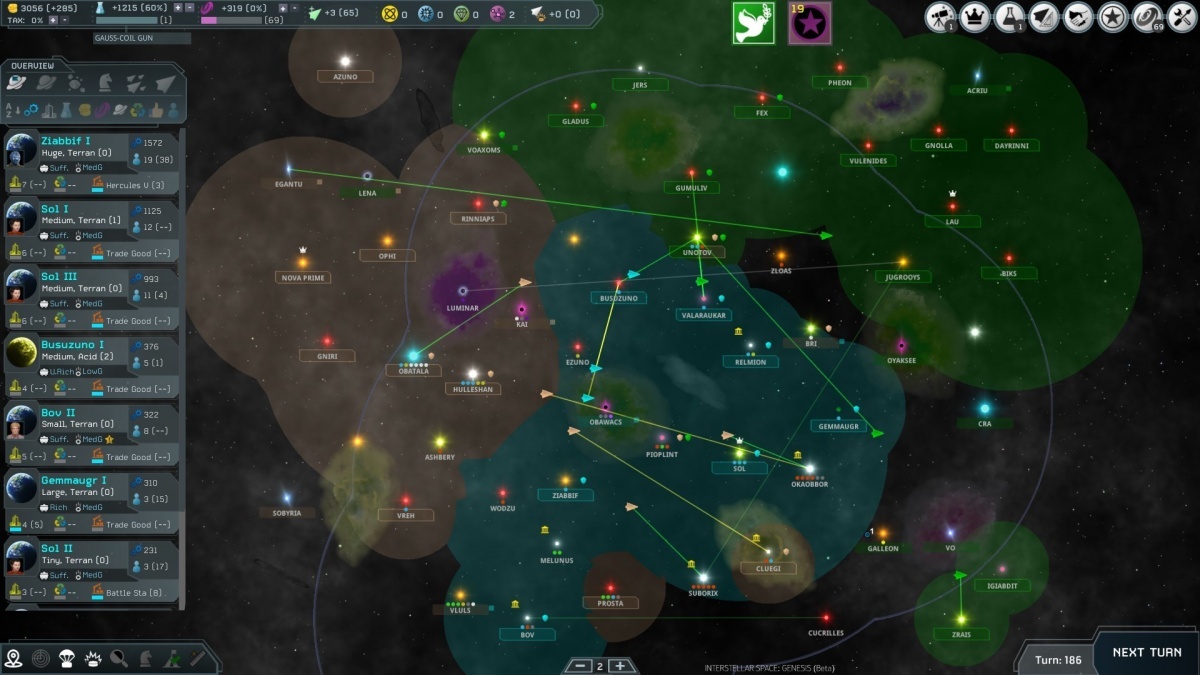Interstellar Space: Genesis (PC) Review
By Eric Ace  10.09.2020
10.09.2020

The space 4X strategy sub-genre seems stuck in a rut that has yet to truly be drug out of. Forever in the shadows of the legendary Master of Orion 2, which was released in the mid '90s, few games stray away from the formula with much success. In contrast with those that copy it, everything else rapidly blurs together, with few standouts. What is unique about Interstellar Space: Genesis, isn't that it is that unique, but it has enough new ideas that breath some much needed like into the genre you might as well call 'The Master of Orion genre.' These ideas will likely be around longer than the game itself may or may not be.
Interstellar Space: Genesis treads where many have gone before it, that of a Master of Orion clone. This is not as much of a disparaging remark as it might seem, as MoO2 was absolutely legendary, with approachable gameplay, simple yet deep mechanics, and colourful art. It was just an insanely well-rounded game - oh, and this all happened in the mid '90s, and it has largely yet to be rivalled. What remains tough to argue against, is that the modern state of the space/sci-fi 4X genre has largely grown stale, with few new touches, and arguably few truly good replacements too. Enter Interstellar Space: Genesis. It is not going to replace anything yet. It has some really good ideas, but it still has some work ahead of it.
For those unaccustomed to so-called 4X strategy games, essentially these revolve around core aspects that are tied to each other: exploring the map, exploiting its resources, expanding the empire, and exterminating enemies. The MoO2 clones see a player with a small colony in space, they manage generating money, production, and research, as they balance what to focus on, as they expand through the stars. Generally, this involves improving the colony, building new ships and getting new technology.

None of this is unique to these clones, and Interstellar Space: Genesis follows this completely. While it worked for that great game 25 years ago, the problem is the magic just has yet to recaptured. There was elegance in its simplicity, leaving so many alternatives that complex strategies could form around them. It is tough to explain why the magic is not there in here anymore. There are some problems which will be covered, but perhaps it is just that the game's aspects are not nearly as coherent.
Going off this point is perhaps the best way to describe while this is 'good,' just not that great yet. For example, a very cool and original idea for how much production a planet has is a calculation of people, buildings, and the planet's development level. The first two are nothing new, but in this one of the things to balance is how much money is being spent on 'Infrastructure,' and with high enough levels and time these numbers go up, allowing more buildings and higher multiples of production. Having this as a multiplier was an interesting idea that was enjoyed.
The problem is, even though hovering over a tool tip will show the break down in numbers, it is not really clear in the slightest just how much something will actually boost anything. For example, a building might say 'flat +20 boost,' but boost sustainably higher than that. Likewise, something might say '+1 per population,' which having only six guys on the planet seems like a bad investment, but it gets rolled into some crazy calculation that ends up giving a huge bonus. Rapidly it turns into "well this boosts production, I don't know by how much, but I'll build it anyway." This is a problem, because the more stuff "just happens," the less strategy becomes part of it all. Far too often it feels like building a structure because you "should," but having no clue the magnitude of what this actually means.

In a weird way research feels like an opposite problem. In MoO2 any research felt like a huge deal, and just as the game rolled on, it felt like the colonies were in fact becoming more advanced with gravity generators, holo theatres, missile defences and so on. In this you just kind of rip through the research, and never truly feel the advancement. To their credit, the passive bonuses that unlock in research are welcome, and make a lot of sense, but this feeling of a lack of progression is hard to get around. Given that you can research everything, and no choices get left behind, it raises an interesting question (to wax philosophical for a moment) if having more things makes us less happy.
One idea that this game deserves praise for is its take on exploration, which normally means a scout ship is sent out, and about 1/10 of the way through the game the exploring is done forever. In this there is a special screen that every few turns the player can scan a sector of space with a small chance of finding a new special star or happening. It doesn't really make sense, but it is great fun to suddenly find a really nice star system right next door to the home world. Hopefully this gets expanded some, as it is one of the strong points of the experience.

Something that hurts this is that the UI still needs some work. Far too often various text boxes spill off the screen, things become un-clickable, or the game freezes in some half command that never gets executed. The terraforming comes to mind too, where in a few games in, it is still confusing which of the buttons does what, and when can it even be used as far as the planetary terraforming/condition improvement goes. The terraforming and planetary conditions are a great idea, but as stated even having played a while it is not clear at all when something can be built, or what two tabs in this section actually do.
Simply because the genre is so starved and Interstellar Space: Genesis is 'decent,' it will be fun for a romp through a single play. There is a lot here, but it simply just feels like you see most of it and it doesn't have that 'can't wait for next time' feeling the classic had. Though parts of this sound very critical, there is actually a fair amount of hope towards this. There is a very solid framework here, and most of these issues can likely get fixed and polished away. It actually is better than some of its other contemporaries, but technical issues really get in the way, and it feels like it needs more time to find its own stride.

Cubed3 Rating
Good
There is actually a lot of hope for this. At this stage it feels like it still should be in a final beta stage as there are things that still lack polish, such as text spill-overs and unclear mechanics. While it is clearly a Master of Orion 2 clone, it has some ideas that actually are pretty cool and can really be expanded on. Notably the exploration system does a good job of keeping it relevant, unlike many games in the genre. Between the industry system, the terraforming, and the exploration, there are some neat ideas here - this just lacks some of that magic, and desperately cries out for a more coherent experience.

![]() 6/10
6/10
![]() 0
(0 Votes)
0
(0 Votes)
 Out now
Out now  Out now
Out now  Out now
Out now  Out now
Out now Comments
Comments are currently disabled

 Sign In
Sign In Game Details
Game Details Subscribe to this topic
Subscribe to this topic Features
Features





 Top
Top

